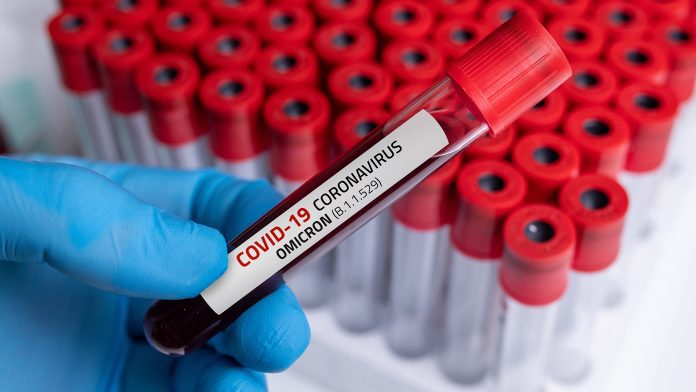
A new study from the US has revealed that vaccinated individuals are less likely to require critical care for Omicron symptoms compared to unvaccinated people.
The emergence of the Omicron variant of SARS-CoV-2 in December 2021 corresponded with a surge in hospitalisations from COVID-19 in the US, where it has become the most dominant strain of the disease.
Now, a novel study performed by Cedars-Sinai and the Centers for Disease Control and Prevention (CDC) had identified that during this wave, vaccinated adults had less severe Omicron symptoms compared to those unvaccinated and were less likely to require intensive care.
Matthew Modes, MD, a pulmonologist at Cedars-Sinai and co-first author of the paper, said: “Overall, the Omicron-period group had a lower likelihood of being admitted to the intensive care unit (ICU) and were also less likely to require invasive mechanical ventilation compared with the Delta-period group.”
The research is published in the CDC’s Morbidity and Mortality Weekly Report.
Alleviating Omicron symptoms
The team’s research was a single-hospital study where they analysed the characteristics of 339 hospitalised COVID-19 patients at the Cedars-Sinai Medical Center in Los Angeles between July to September 2021, a period when the Delta variant was the most dominant. The researchers then contrasted that group with 737 patients admitted to the hospital when the Omicron variant was rife between December 2021 and January 2021.
Additionally, the team compiled the patient’s electronic health record information, which was subsequently examined by a team of investigators led by Sharon Isonaka, MD, MS, chief value officer and vice president for Clinical Efficiency and Value at Cedars-Sinai.
The analysis illuminated that a significant amount of the patients hospitalised during the Omicron surge were vaccinated compared to the number of patients admitted to the hospital during the period the Delta variant was prevalent, suggesting a more significant percentage of the population were vaccinated at this time. The data demonstrated that fewer patients (4%) who were hospitalised due to Omicron symptoms die compared to (8.3%) admitted when the Delta variant was dominant.
Peter Chen, MD, senior author of the study and director of Pulmonary and Critical Care Medicine at Cedars-Sinai, said: “In addition to the protection that vaccination offered people admitted to the hospital when Omicron dominated, we saw that the addition of a booster dose appeared to be particularly important in reducing the severity of illness, especially among older adults.
“Unvaccinated patients hospitalised with COVID-19 during the Omicron variant dominance still had a higher chance of being admitted with serious complications and appeared to be at higher risk for the development of respiratory failure, compared with vaccinated patients.”
The importance of vaccines
Healthcare systems around the world have been decimated due to the substantial number of hospitalisations during the COVID-19 pandemic. The experts reiterate that vaccinations, including a booster dose for those fully vaccinated, is essential for minimising the risk of severe illness from COVID-19 infection.
“A clear pattern emerges if you take just the Omicron-period patients and compare their vaccination status against the percentage of them who ended up in the ICU. The more vaccinated someone is–from unvaccinated, partially vaccinated, fully vaccinated without a booster dose to fully vaccinated with a booster dose−the better the outcome for the patient,” said Michael Melgar, MD, a co-first author of the study and a medical officer with the CDC.
























